As black-and-yellow taxis stayed off roads to protest against app-based cab services like Uber, the latter used the opportunity to fleece customers, by hiking its minimum fare to a whopping Rs 750
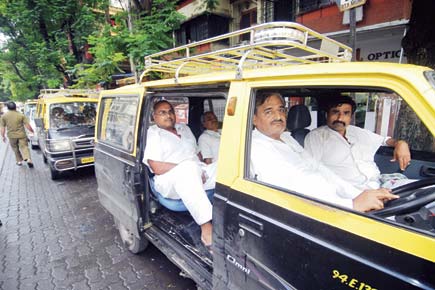
It was the ultimate irony. Black-and-yellow taxi drivers went on a strike yesterday to protest against app-based aggregators such as Uber and Ola and, in the process, ensured that their counterparts driving for the companies had one of their best days ever, with fares skyrocketing to three and even five times the normal rates.
Also Read: Commuters badly hit by Monday's taxi strike in Mumbai
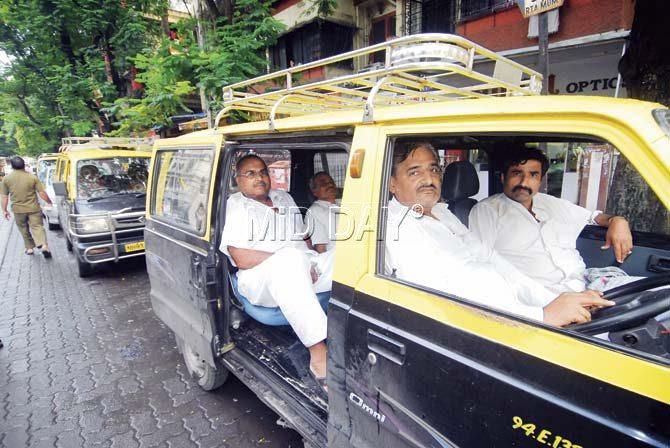
A group of black-and-yellow taxi drivers relax on a rare holiday. Pic/Sameer Markande
For the customers of these cab services, however, the day was the polar opposite of good, with Mumbaikars getting one of the first real tastes of the ‘dynamic pricing’ that has made Uber find itself at the receiving end of much criticism at home in the United States and in several other countries where it operates.
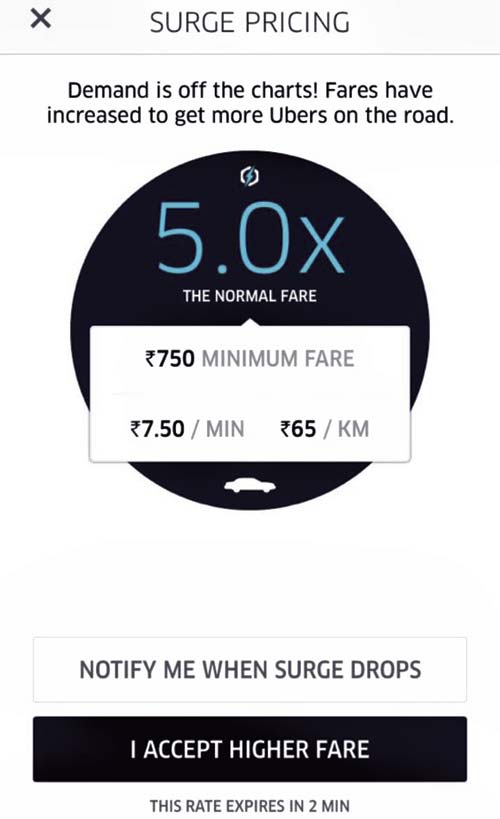
Booking a cab on the Uber app, many customers found that they would have to shell out a whopping Rs 750 as the minimum fare (for 5 km) as against the usual Rs 150. For every additional kilometre, the fare quoted was Rs 65, against the Rs 13-17 charged normally. The situation was similar for customers of Ola as well.
Also Read: Taxi strike hits passengers at Mumbai airport hard
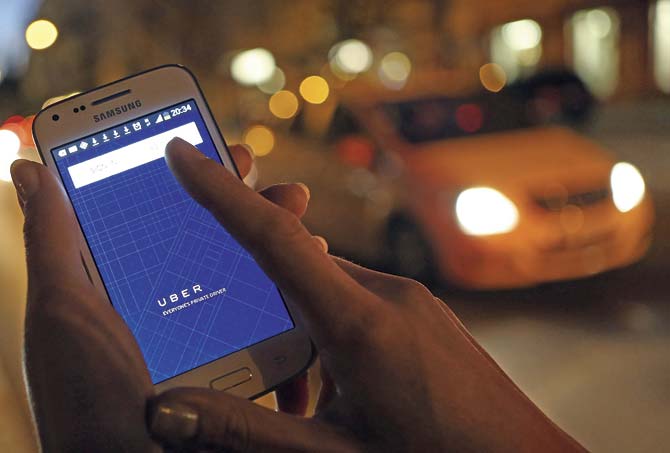
A commuter uses the Uber app on her smartphone. Pic/Getty Images
This meant that Rs 750, which would have allowed you to travel more than 50 km in an Uber cab on an ordinary day would be good only for one-tenth of that yesterday (see graphic). While angry users took to social media to express their shock and anger, with one Twitter user denouncing the move as ‘daylight robbery’, executives of the companies said simple economics was at play, invoking the rules of demand and supply.
Up, up and away
Yesterday’s strike was called by the Nitesh Rane-led Swabhimaan Sanghatana and while several taxis were plying in the morning, most of the 38,000 black-and-yellow taxis gradually went off the road. This meant that most of the burden fell on fleet cab operators and app-based aggregators Uber, Ola and TaxiForSure.
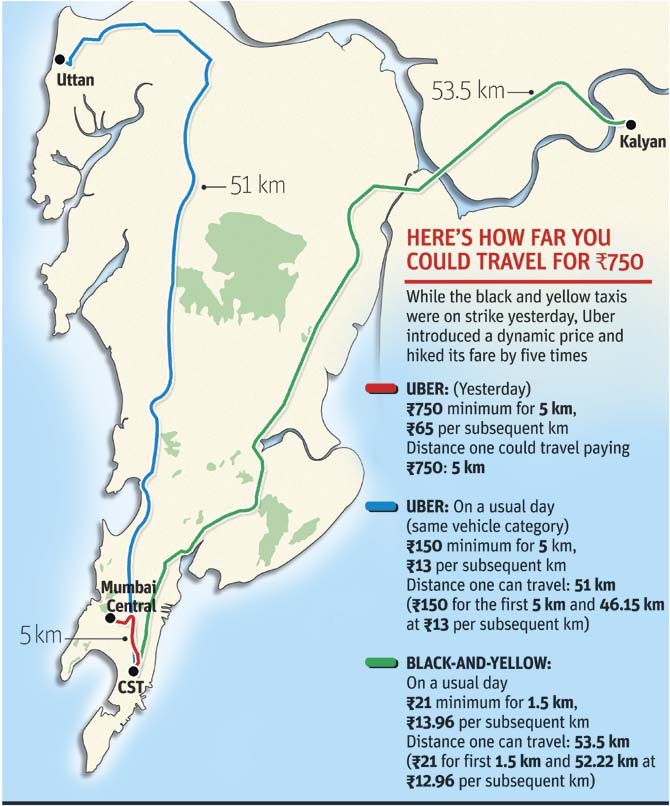
The number of taxis run by these aggregators is a mere 5,500, according to transport department sources over 1,200 cabs of Uber, 2,200 of Ola and 1,000 of Taxi For Sure. The increased demand sent prices soaring. Uber, in fact, mentioned on its mobile app that since demand had gone off charts, fares had been increased so that there were more Ubers on the road.
Mumbai: Commuters face harrowing time as taxis, autos go on strike
The usual minimum fares of Uber are Rs 60, Rs 100 and Rs 150 for the first 5-7 km depending on the model of vehicle chosen. Yesterday, however, the app offered up minimum fares as high as Rs 750 for vehicles in the Rs 150 category and gave users two options: ‘Notify Me When Surge Drops’ and ‘I Accept Higher Fare’.
The fare mentioned for each subsequent km was also a whopping Rs 65 per km. Travelling at those fares would, thus, mean forking out as much as R1,075 for a 10-km ride.
‘Demand and supply’
While angry customers took to Twitter, Facebook and other social networking sites to vent their ire (see box), the companies cited the demand-supply equation. “The hike in fares is on the basis of algorithms fed into the system.
It’s a simple demand-supply equation where, with surge in demand, the prices went up as well, and shall come down when demand-supply equalises,” said Karun Arya, Head of Corporate Communications (India and South Asia), Uber.
Officials said prices had gone up earlier as well, during days like New Year’s Eve and executives from other companies said they have a similar system of working. They claimed that hiking fares was meant as an incentive for their drivers to get their vehicles out on the road so that they, too, could earn more.
“There was a hue-and-cry on social media over the sudden hike, but we are doing this as a measure to get more cabs on road,” said an official from Ola Cabs, which also has three different fare slabs based on the category of vehicle.
The minimum fare is Rs 100, Rs 150 and Rs 200 for hatchbacks, economy sedans and luxury sedans respectively and the subsequent fare is Rs 13-17 per km.
 Subscribe today by clicking the link and stay updated with the latest news!" Click here!
Subscribe today by clicking the link and stay updated with the latest news!" Click here!









